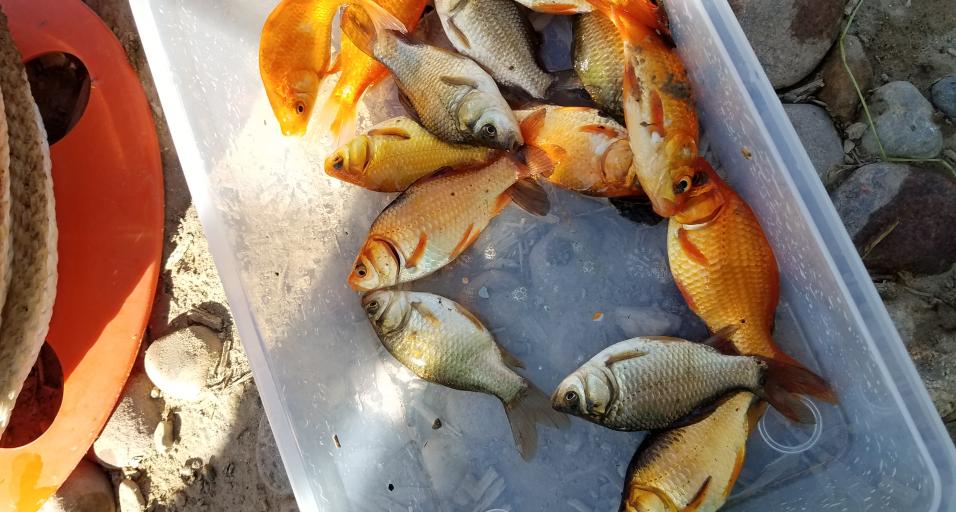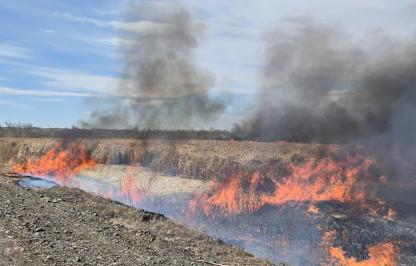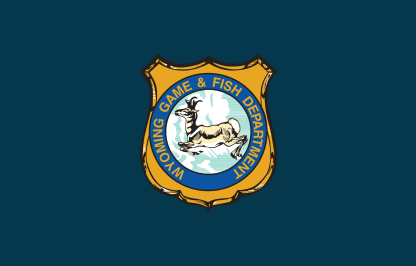Wyoming Game and Fish Department fisheries biologists in the Green River Region recently discovered goldfish in the pond at Bitter Creek Bark Park as well as in several other Rock Springs ponds following a tip from a concerned citizen. The discoveries have prompted biologist to urge people to not release aquatic pets into the wild. Goldfish and other pets can have harmful impacts to the ecosystem and native species.
“Although this issue was only recently brought to our attention, it appears we have an ongoing problem with members of the public releasing aquarium pets and pouring their aquarium water into local water bodies,” said Fisheries Biologist Jessica Dugan.
Aquatic pets can become a problem when owners let them loose, and it is also cruel to the animal. “When pets get too large or difficult to keep, some people think they are being kind by letting them loose in the wild. That’s not the case,” Dugan said. “Most pets will starve or freeze to death and those that do survive can cause significant ecological impacts.”
Releasing any aquatic pets, including goldfish, can have significant impacts on local fisheries. Goldfish are fast-growing, with mature individuals averaging about 12 inches, but can reach sizes up to 23 inches.
“This is not ideal for a fishery or for an angler seeking an outstanding fishing experience,” Dugan said “Further, it will require additional time, sportsperson money and effort to protect the resource that could have been spent on other high-priority fisheries issues.”
Illegally-introduced species can also spread disease that can infect other fish species, including game fish like trout. Few of these diseases exist in Wyoming, but could be brought into the state through an aquarium fish that can survive a wide range of environments.
Discovering goldfish in local ponds is especially concerning following the identification of zebra mussels in moss balls, a popular tank decoration used to oxygenate the water. Zebra mussels are an aquatic invasive species known to cause damage to natural resources and water systems.
“Once they become established in reservoirs, lakes, or other water systems, they remove nutrients from water, clog pipes and waterways and can damage property,” Dugan said.
If zebra mussels are introduced into Wyoming waters, they could have long-lasting detrimental impacts. So far, zebra mussels have not been identified in any natural waters in the state; moss balls remain under a quarantine order from the Wyoming Department of Agriculture.
Because an illegal introduction can have disastrous impacts to a fishery and an entire watershed, the crime carries some of the highest penalties that exist for wildlife violations, including the potential loss of fishing and hunting privileges and fines up to $10,000.
“We care about our fisheries in Wyoming. That’s why we’re urging you to never release any pets into the wild or pour your aquarium into any of Wyoming’s waters. The best solution if you’re looking to re-home your pets is to visit your local pet store or humane society so they can be placed with a new owner,” Dugan said.
To learn more about preventing the spread of aquatic invasive species and what you can do with a pet that is no longer wanted, visit the Don’t Let It Loose website.




